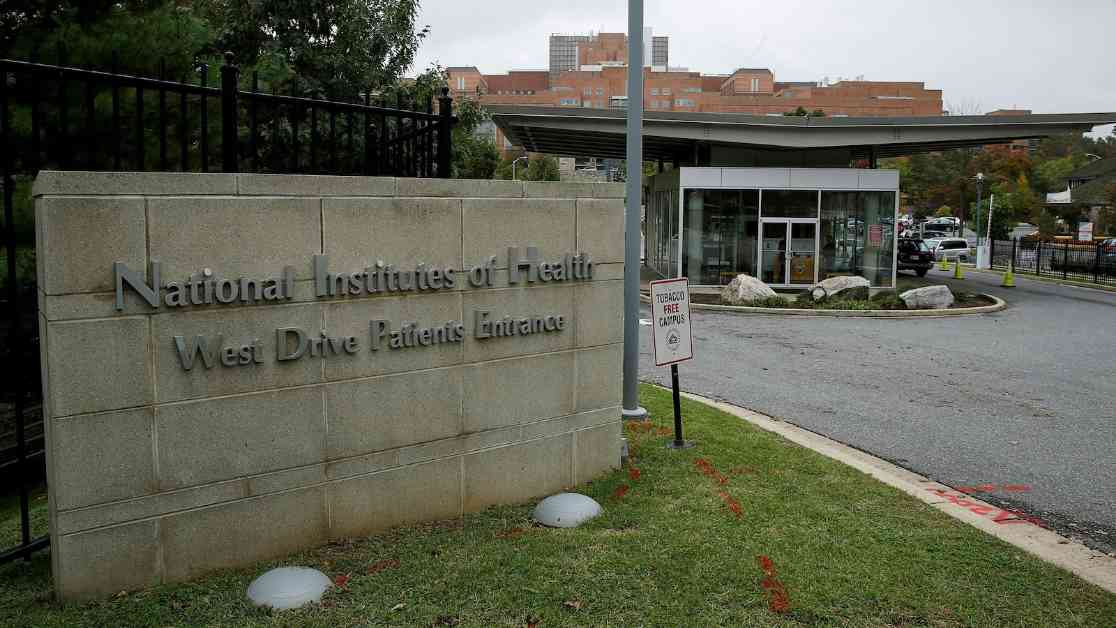A group of researchers, led by Dr. Brittany Charlton, an associate professor at Harvard T.H. Chan School of Public Health, has taken a bold step by filing a lawsuit against the National Institutes of Health (NIH) and the Department of Health and Human Services (HHS) for abruptly terminating millions of dollars’ worth of grants. The lawsuit, aimed at halting further cancellations of critical research projects, was initiated on Wednesday evening and has gained significant attention for its potential impact on the future of scientific research in the United States.
Dr. Charlton, a respected scientist in the field of epidemiology, expressed her concerns over the abrupt termination of all her grants, citing reasons related to alleged misalignment with agency priorities. In a statement to ABC News, she emphasized the complexity of contract law and the implications of NIH’s actions, which triggered alarm bells within the scientific community.
The lawsuit has garnered support from various organizations, including the American Public Health Association, Ibis Reproductive Health, and the United Auto Workers, in addition to three other researchers. The legal action underscores the growing tension between scientific research and governmental policies, particularly concerning LGBTQ+ issues, gender identity, and diversity, equity, and inclusion (DEI) initiatives.
Termination of Research Grants Sparks Controversy
Over the past few weeks, the NIH has come under scrutiny for abruptly terminating over 900 research grants linked to LGBTQ+ health, gender identity, and other sensitive topics. These terminations, reportedly carried out in response to the priorities of the Trump administration, have raised concerns about the politicization of scientific research and the potential impact on public health outcomes.
In response to the terminations, the HHS and NIH have refrained from commenting on the ongoing litigation, further fueling speculation about the motives behind the grant cancellations. The lawsuit, filed by a coalition of researchers and organizations, alleges that the NIH’s actions constitute a “reckless and illegal purge” aimed at stifling research on critical health issues affecting marginalized populations.
Personal Stories Highlight Impact of Grant Terminations
Dr. Charlton’s personal accounts shed light on the human cost of the grant terminations, emphasizing the far-reaching consequences on her research projects and the LGBTQ Health Center of Excellence at Harvard T.H. Chan School of Public Health. With nearly $15.9 million in NIH research contracts at stake, Dr. Charlton faces the daunting prospect of shutting down vital research initiatives and laying off staff members.
The lawsuit also highlights the plight of other researchers, such as Dr. Katie Edwards from the University of Michigan and Dr. Nicole Maphis from the University of New Mexico, whose work on critical health issues, including sexual violence and Alzheimer’s disease, faces an uncertain future due to the grant terminations. The lawsuit underscores the broader implications of the NIH’s actions on the scientific community and the pursuit of innovative research.
As the legal battle unfolds, Dr. Charlton remains hopeful that the courts will uphold the sanctity of research contracts and safeguard the integrity of scientific inquiry. Amid growing concerns about authoritarianism and the erosion of scientific principles, the lawsuit represents a crucial defense of academic freedom and the pursuit of truth through evidence-based research.
In conclusion, the lawsuit filed by Dr. Brittany Charlton and her colleagues against the NIH and HHS marks a pivotal moment in the ongoing debate over the politicization of scientific research. By challenging the abrupt termination of critical research grants, the lawsuit underscores the vital role of academic freedom and evidence-based inquiry in shaping public health outcomes. As the legal battle unfolds, the outcome of this case could have far-reaching implications for the future of scientific research in the United States and beyond.















